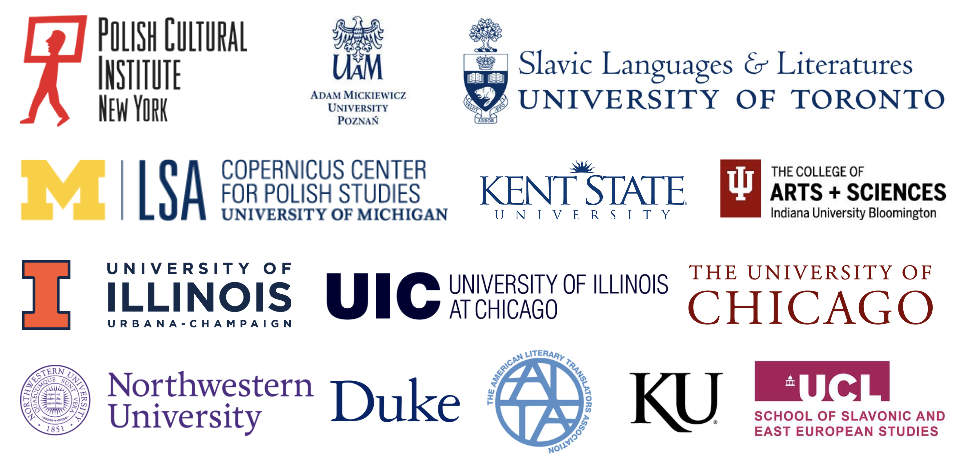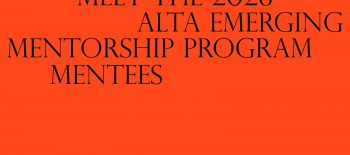Zuzanna Ginczanka with Anna Muller, Mira Rosenthal, and Joanna Trzeciak Huss
S3E9 and all video recordings are available on our YouTube.
Encounters with Polish Literature is a video series for anyone interested in literature and the culture of books and reading. Each month, host David A. Goldfarb will present a new topic in conversation with an expert on that author or book or movement in Polish literature. More about the Encounters with Polish Literature series and the timeline.
Zuzanna Ginczanka (1917-44) was born to Jewish parents in Kyiv, but her father left the family, and her mother remarried and left with her new husband for Spain, leaving Zuzanna to be raised by her grandmother in Równe (today Rivne, Ukraine). Despite, or perhaps because of this difficult childhood, the resonant allusiveness of her work reveals that she had a rich reading life reflected in her notebooks, manuscripts, and poetry that she began publishing as a teenager, attracting the attention of major literary figures such as Julian Tuwim and Witold Gombrowicz.
She is best known for her last work from 1942, “non omnis moriar…,” borrowing the line “not all of me will die” from Horace, where she denounces to posterity the neighbor who denounced her to the Nazi police in Lviv. Friends managed to bribe her away from the Schutzpolizei in Lviv, but she would later be arrested and executed near Kraków in 1944.
Ginczanka crafted a sophisticated body of work leading up to that poem, much of which is collected in an edition edited by Izolda Kiec in 2019. This excellent edition has given rise to a wave of new translations, with two editions out in 2023 by Alex Braslavsky and Alissa Valles (see bibliography below) and two more in process for 2024 by our guests on today’s show. One is hard pressed to find another example of a poet appearing four new English translations by four different translators (and a historian) and four different publishers in the space of two years, particularly considering that she died at a young age and did not leave such a large body of work.
In this episode, we ask why there is such an explosion of interest in Ginczanka at this time. We have a chance to compare translations and think about the role of the translator as an interpreter, and how multiple translations can reveal different layers of meaning in the original text. We ask how Ginczanka can be read as a feminist and an ecopoet. We also consider what it means to rediscover a new prewar Jewish writer in the 21st century.
Selected Translations of Zuzanna Ginczanka and Essays
Ginczanka, Zuzanna. Firebird. Tr. Alissa Valles. New York: New York Review Books, 2023.
Ginczanka, Zuzanna. On Centaurs and Other Poems. Tr. Alex Braslavsky. Intro. by Yusuf Komunyakka. New York: World Poetry Books, 2023.
Gross, Irena Grudzińska. “Something or Other: The Portrait of Zuzanna Ginczanka.” Biweekly.pl. 18 (April 2011).
Meyer, Lily. “Not Everything Dies” (review essay comparing Braslavsky and Valles translations). Poetry Foundation. July 10, 2023.
Video Resources
“Grolier Hybrid Reading — Alex Braslavsky, Margueite Feitlowitz and Danielle Pieratti,” Grolier Poetry Book Shop, Mar. 20, 2023.
“Personal stories – Julian Tuwim and Zuzanna Ginczanka,” POLIN Museum, Nov. 16, 2021.
“Written in the Margins: Zuzanna Ginczanka’s Poetry in English Translation – a webinar recording,” Kosciuszko TV, May 18, 2022.
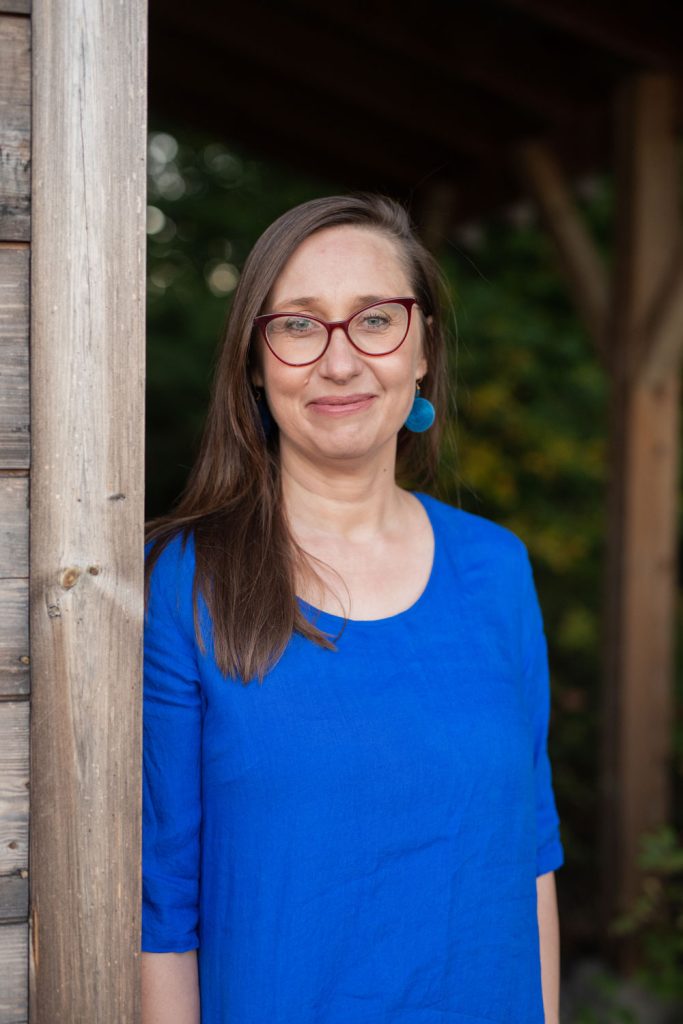
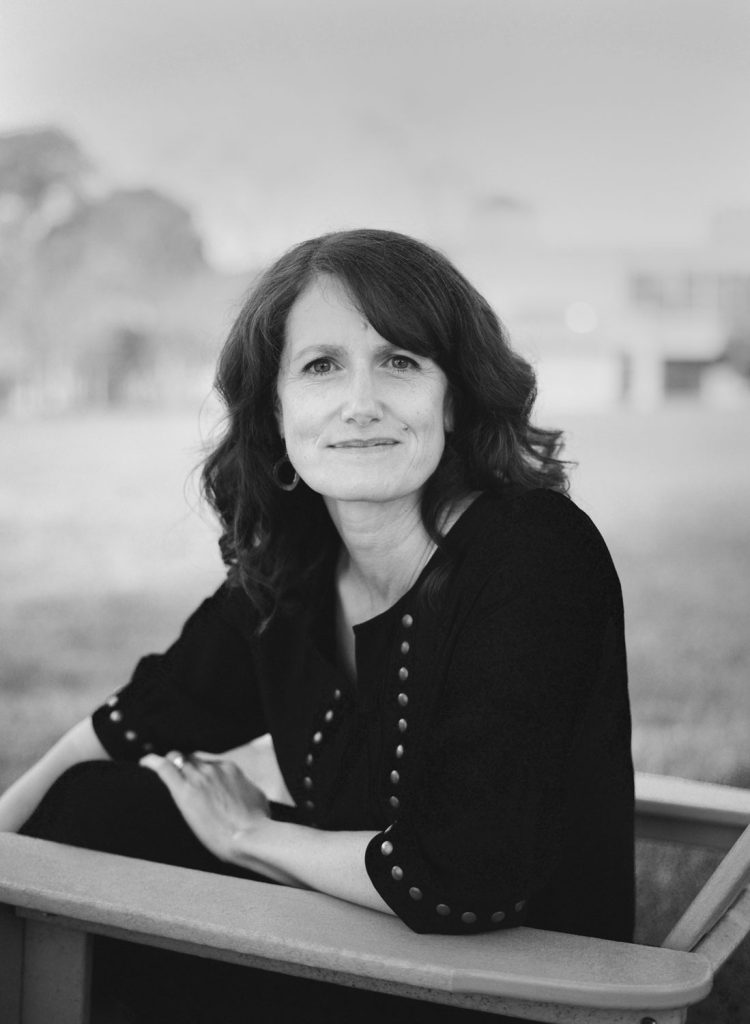
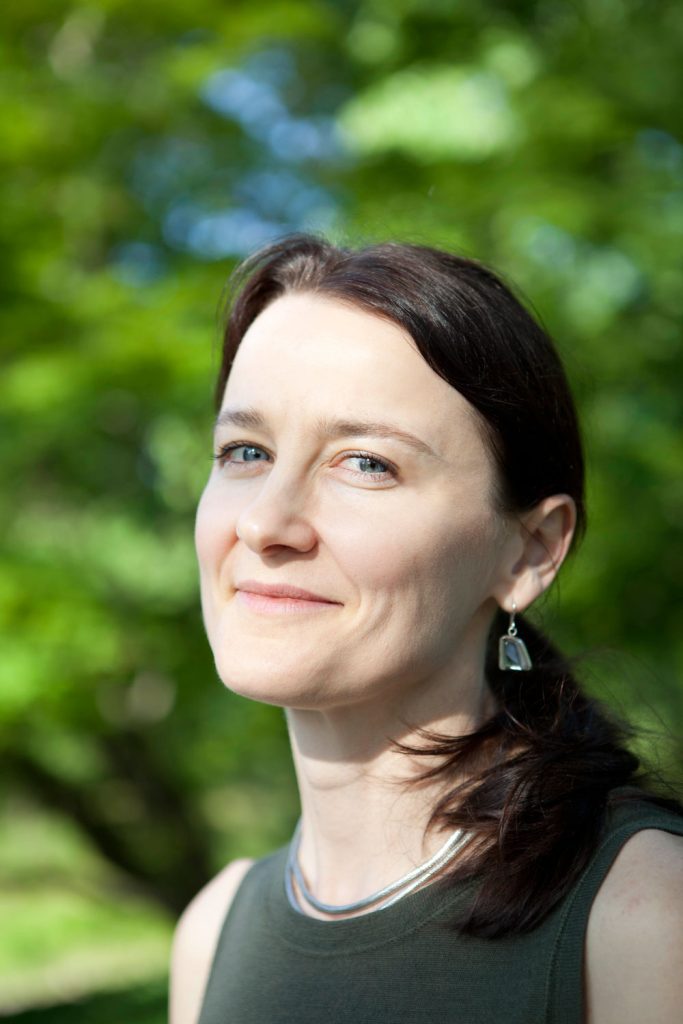
Anna Müller holds an M.A. from the University of Gdańsk, Poland and a Ph.D. from Indiana University. She is the Frank and Mary Padzieski Endowed Professor in Polish/Polish American/Eastern European Studies in the Department of Social Sciences at the University of Michigan-Dearborn. From 2010 to 2012, she worked as a curator for the Museum of the Second War in Gdańsk, Poland, where she co-curated exhibitions on the Holocaust, concentration camps, forced labor, and eugenics. She is the author of If the Walls Could Speak. Inside a Women’s Prison in Communist Poland (Oxford University Press, 2018) and a collection of oral histories with former political prisoners from Eastern Europe, entitled Przetrwać. Żyć Dalej. Rozmowy z więźniarkami z Europy Środkowej 1945-1956 (in Polish), and An Ordinary Life? The Journeys of Tonia Lechtman, 1918-1996 (Ohio University Press, 2023).
Mira Rosenthal is the author of Territorial, a Pitt Poetry Series selection and finalist for a 2022 INDIES Book of the Year award, and The Local World, winner of the Wick Poetry Prize. Her honors include a National Endowment for the Arts Fellowship, a Stegner Fellowship from Stanford University, and residencies at Hedgebrook and MacDowell. Her work appears regularly in such journals as Poetry, The New York Review of Books, Ploughshares, Threepenny Review, Guernica, Harvard Review, New England Review, A Public Space, and Oxford American. Her translations of Polish poetry include Krystyna Dąbrowska’s Tideline and Tomasz Różycki’s Colonies, which won the Northern California Book Award and was shortlisted for numerous other prizes, including the International Griffin Poetry Prize and the Oxford Weidenfeld Translation Prize. Her translation of Różycki’s To the Letter is forthcoming from Archipelago books in 2023. She has taught creative writing, literature, and translation at various universities, including as a Distinguished Visiting Writer at Cornell College and as a Fulbright Scholar at Jagiellonian University in Kraków, Poland. She is an associate professor of creative writing at Cal Poly.
Joanna Trzeciak Huss is Professor of Translation Studies and Polish & Russian Translation at Kent State University. Her research concerns collaborative translation, self-translation, twentieth and twenty-first century Russian and Polish literature, and issues at the intersection of literature and philosophy. She has edited special issues of The Polish Review on Olga Tokarczuk and Stanisław Lem. Her translations have appeared in The New York Times, The New Yorker, Times Literary Supplement, Harpers, The Atlantic, Paris Review, Field, Zvezda, Boston Review, nonsite, and New Ohio Review, among others. Her books of poetry translation include Miracle Fair: Selected Poems of Wisława Szymborska (W.W. Norton) and Sobbing Superpower: Selected Poems of Tadeusz Różewicz (W.W. Norton). Her Collected Poems of Zuzanna Ginczanka is forthcoming in 2024 from Zephyr Press. She is the recipient of the 2020 Michael Heim Prize for Collegial Translation.
Lead image: Zuzanna Ginczanka. Source: Wikipedia.
Bartek Remisko, Executive Producer
David A. Goldfarb, Host & Producer
Natalia Iyudin, Producer
